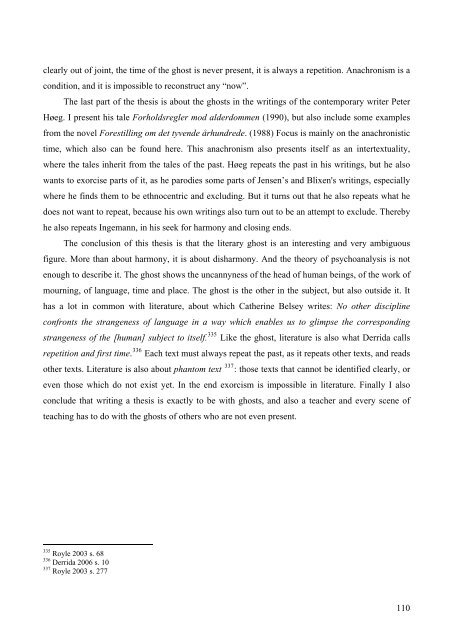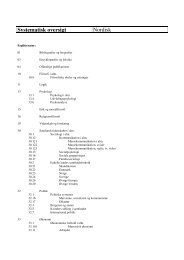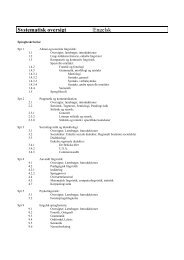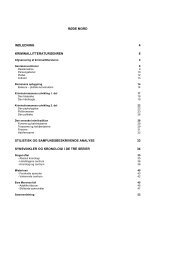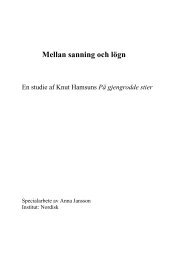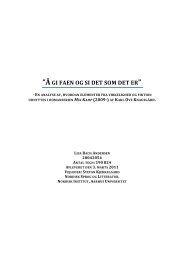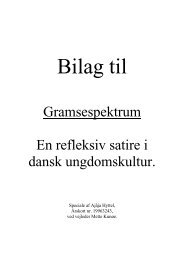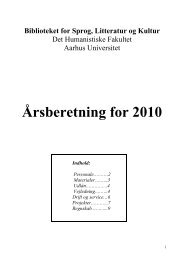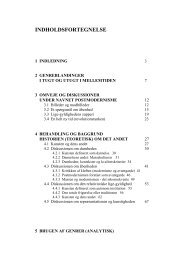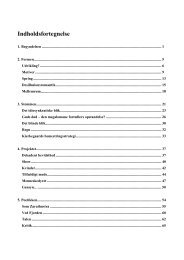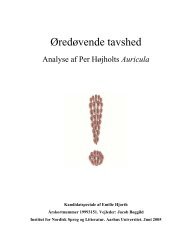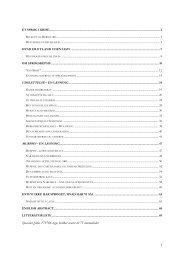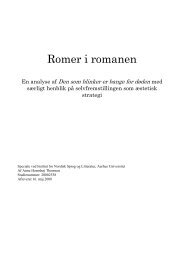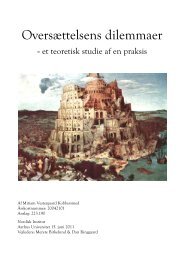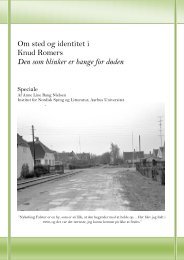Det fortrngtes tilsynekomst
Det fortrngtes tilsynekomst
Det fortrngtes tilsynekomst
You also want an ePaper? Increase the reach of your titles
YUMPU automatically turns print PDFs into web optimized ePapers that Google loves.
clearly out of joint, the time of the ghost is never present, it is always a repetition. Anachronism is a<br />
condition, and it is impossible to reconstruct any “now”.<br />
The last part of the thesis is about the ghosts in the writings of the contemporary writer Peter<br />
Høeg. I present his tale Forholdsregler mod alderdommen (1990), but also include some examples<br />
from the novel Forestilling om det tyvende århundrede. (1988) Focus is mainly on the anachronistic<br />
time, which also can be found here. This anachronism also presents itself as an intertextuality,<br />
where the tales inherit from the tales of the past. Høeg repeats the past in his writings, but he also<br />
wants to exorcise parts of it, as he parodies some parts of Jensen’s and Blixen's writings, especially<br />
where he finds them to be ethnocentric and excluding. But it turns out that he also repeats what he<br />
does not want to repeat, because his own writings also turn out to be an attempt to exclude. Thereby<br />
he also repeats Ingemann, in his seek for harmony and closing ends.<br />
The conclusion of this thesis is that the literary ghost is an interesting and very ambiguous<br />
figure. More than about harmony, it is about disharmony. And the theory of psychoanalysis is not<br />
enough to describe it. The ghost shows the uncannyness of the head of human beings, of the work of<br />
mourning, of language, time and place. The ghost is the other in the subject, but also outside it. It<br />
has a lot in common with literature, about which Catherine Belsey writes: No other discipline<br />
confronts the strangeness of language in a way which enables us to glimpse the corresponding<br />
strangeness of the [human] subject to itself. 335 Like the ghost, literature is also what Derrida calls<br />
repetition and first time. 336 Each text must always repeat the past, as it repeats other texts, and reads<br />
other texts. Literature is also about phantom text 337 : those texts that cannot be identified clearly, or<br />
even those which do not exist yet. In the end exorcism is impossible in literature. Finally I also<br />
conclude that writing a thesis is exactly to be with ghosts, and also a teacher and every scene of<br />
teaching has to do with the ghosts of others who are not even present.<br />
335 Royle 2003 s. 68<br />
336 Derrida 2006 s. 10<br />
337 Royle 2003 s. 277<br />
110


